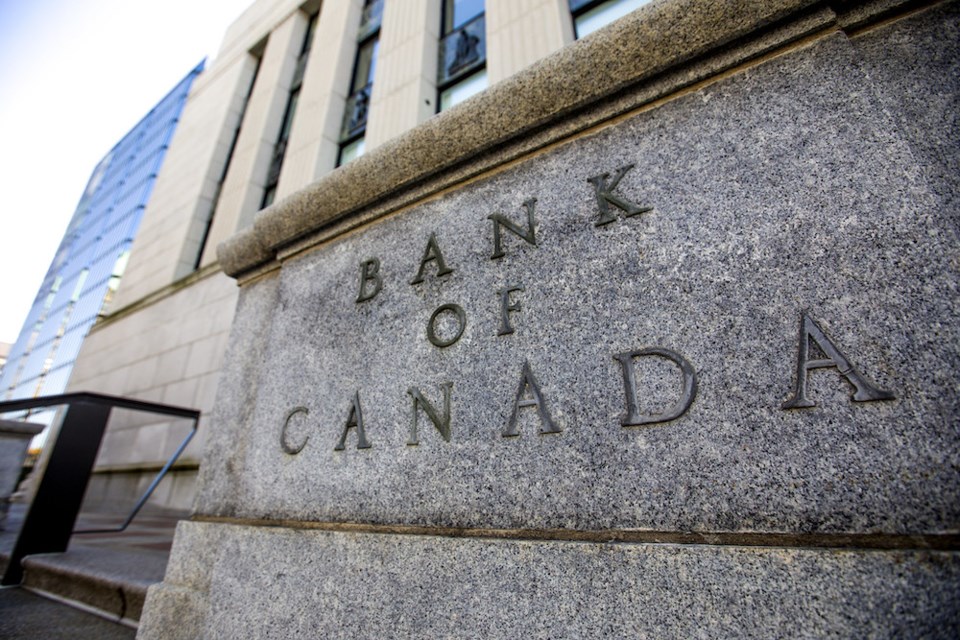NEWS
Bank of Canada holds the course, boosting investor confidence

No growth, no interest rate hike.
That’s the message from the Bank of Canada this morning, as it held its policy rate steady at five per cent as part of a policy of quantitative tightening.
“The economy has stalled since the middle of 2023 and growth will likely remain close to zero through the first quarter of 2024,” the bank said in announcing its decision. “Consumers have pulled back their spending in response to higher prices and interest rates, and business investment has contracted. … Overall, the Bank forecasts GDP growth of 0.8 per cent in 2024 and 2.4 per cent in 2025.”
However, policymakers at the bank noted that its position was largely unchanged from October and underscored its ongoing concerns about inflation.
With wages continuing to increase in the range of four to five per cent, and growth set to rise in the latter half of the year as governments and consumers pick up spending, it wants to ensure cost pressures remain in check.
“The [Governing] Council is still concerned about risks to the outlook for inflation, particularly the persistence in underlying inflation,” the bank’s statement said. “Core measures of inflation are not showing sustained declines.”
Shelter costs remain the biggest contributor to inflation, the bank said.
High interest rates and strong rent growth making housing less affordable, not to mention an imbalance between supply and demand – acknowledged this week in Ottawa’s decision to cap international student entries even though the housing shortage goes well beyond student housing.
Demand has also contributed to higher prices even as higher financing costs have made it difficult for buyers to afford purchases.
Royal LePage’s most recent home price update forecasts a three per cent increase in Metro Vancouver home prices this year, led by a four per cent increase in apartment prices.
Calgary is expected to top the charts for price growth this year, with an eight per cent increase, again driven by apartment prices, which Royal LePage expects to increase 9.5 per cent.
“Rising lending rates have had a notable impact on the housing sector, prompting potential buyers to search for more affordable housing options,” the Calgary Real Estate Board’s outlook report released this week stated. “Conditions are expected to remain tight for lower-priced properties, contributing to continued price gains.”
Yet from an investment point of view, price gains are what should bring vendors into the market, easing supply constraints and creating options for buyers.
“The narrative suggesting that the housing market will rebound only when the Bank of Canada lowers rates misses the mark,” Phil Soper, president and CEO of Royal LePage said this week in advance of the bank’s rate announcement. “The recovery will begin when consumers have confidence the home they buy today will not be worth less tomorrow. We see that tipping point occurring in the first quarter, before the highly anticipated easing of the Bank of Canada’s key lending rate.”
The Bank of Canada is scheduled to make its next rate announcement March 6. The majority of observers do not expect a rate cut before the second quarter, meaning rates will hold steady five per cent until at least the April 10 rate announcement.
